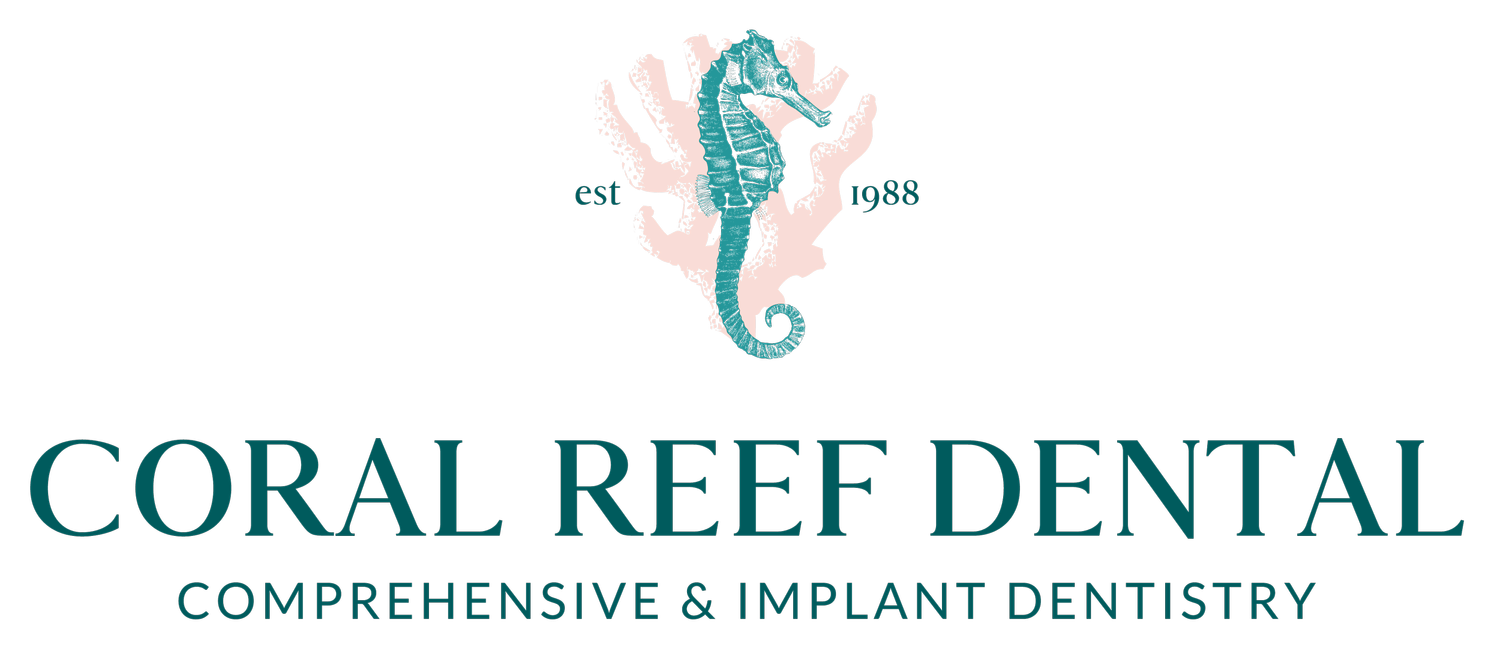Why Does Mouthwash Burn?
Including mouthwash in your oral care routine is one way to get a full mouth clean. It’s advertised as helping combat bad breath, gum disease, and cavities. A tingly, refreshing sensation is usually a hallmark of this liquid oral hygiene product.
Many brands even brag that the tingly feeling in your mouth lets you know it’s working. But for some of us, there’s a fine line between minty fresh and painful burning.
Exactly what makes some mouthwash brands burn usually comes down to ingredients. Even if you use these products as directed, you may experience negative side effects. A burning sensation might signal a deep clean, or there could be a bigger problem.
These products are formulated to loosen stuck food particles and kill bacteria, not cause mouth ulcers! Today, we’re looking into why some mouthwashes burn.
Ingredients that make mouthwash burn
As we mentioned, the biggest reason behind the sting of most mouthwash brands comes down to ingredients. Several common ingredients have side effects that make you wake up and pay attention when using mouthwash.
Some mouthwashes have over 25% alcohol in them
Alcohol is a common ingredient in mouthwash that can cause a burning sensation during use. While it has no therapeutic properties, it’s frequently used as a base for other ingredients and kills some bacteria along the way.
It’s unlikely to cause a burning feeling in your whole mouth, but you might feel it on your tongue. Taste buds in this part of the mouth detect the alcohol, leaving a burning sensation behind. Alcohol can also lead to dry mouth, so it might be time to switch if you experience these side effects.
If you think alcohol is causing discomfort during rinsing, you can use an alcohol-free mouthwash instead.
Menthol is a common ingredient that can cause burning
Menthol is a common ingredient in many minty products meant to freshen your breath. It’s not just about the scent, though. It also has antimicrobial properties that give you a deep clean in your mouth. But peppermint oil can also cause a burning feeling during use that some people don’t like.
If you’re not concerned about minty-fresh breath, you can use a mouthwash with a different flavor. Bubble gum oral rinse won’t leave you with fresh breath, but it does the job!
The flavor of mint itself is a lot for people to handle
Mint is one of the most popular flavors in oral hygiene products, but it’s not for everyone. If you have highly sensitive taste buds, you may only pick up on the bitter notes in peppermint oil. And, in high enough concentrations, it can lead to a numbing sensation that some people find off-putting.
Thankfully, there are plenty of non-minty mouthwash options on the market!
Why the benefits outweigh the burn
Unless you’ve experienced canker sores or other significant discomfort from mouthwash, the benefits will likely outweigh the burn. Removing bacteria and particulates from your mouth with mouthwash enhances your regular brushing routine.
Mouthwash has teeth-whitening properties
Some mouthwash products have teeth-whitening properties that help you love your smile. Some formulas include bleaching ingredients like hydrogen peroxide, while others use activated charcoal or coconut oil for a gentler clean.
Your tooth enamel will get stronger with mouthwash
Fluoride is a common ingredient in mouthwash and toothpaste meant to strengthen your tooth enamel. It promotes remineralization, where vital minerals bond to the enamel and fill in weakened areas. This not only prevents tooth decay but can actually reverse it!
Bad breath has a lesser chance of appearing
Bad breath has many causes, including tooth decay and infection. For most of us, though, it’s a sign that food particles are stuck or that bacteria are present. Mouthwash helps loosen stuck on food matter and kill bacteria that lead to bad breath.
Including mouthwash into your routine fights against gum disease
Mouthwash can help keep gum disease in check by killing the bacteria that cause it. Gingivitis, a mild and common form, presents as redness, swelling, and bleeding of the gums around the base of your teeth. Routine mouthwash use can keep your gums healthy and happy.
Preventions to take with mouthwash that burns
Using a mouthwash that burns usually won’t damage the tissues in your mouth. If you’re using a strong mouthwash, you’ll likely feel some mild discomfort, regardless of the ingredients. Limit yourself to twice per day to avoid painful side effects.
Here are some other precautions to take when using mouthwash.
Don’t swallow mouthwash
Consuming a small amount of mouthwash won’t hurt, but there are ingredients in many formulas known to cause an upset stomach. Alcohol, eucalyptol, benzoic acid, and methyl salicylate all cause ill effects if consumed in quantity.
Consuming more than what you’d generally rinse with can cause dizziness, nausea, and a rapid heart rate that may require medical care.
Use an alcohol-free mouthwash
Alcohol used to be the most common ingredient in mouthwash formulas. However, not everyone is comfortable with alcohol in their hygiene products. Thankfully, plenty of alcohol-free mouthwash products exist. Choose one of these products if you think alcohol is causing the burning in your mouthwash. Alcohol can actually dry out your oral cavity, leading to overall lower pH in your mouth. We typically recommend a mouthwash without any alcohol in most cases for these reasons.
Consult with your dentist about alternatives
If you just can’t find a product that you like, check with your dentist for alternative formulas. Some natural alternatives, like apple cider vinegar, are popular, but your dentist may have a better recommendation to share.
Coral Reef Dental has all the info you need on your oral hygiene!
At Coral Reef Dental, we’ve got solutions to all of your oral health needs. Our team is ready to help you with everything from routine cleaning to major oral surgery. If you have any questions about maintaining good oral hygiene, we’re here for you.
Check out our website to schedule an appointment today!


